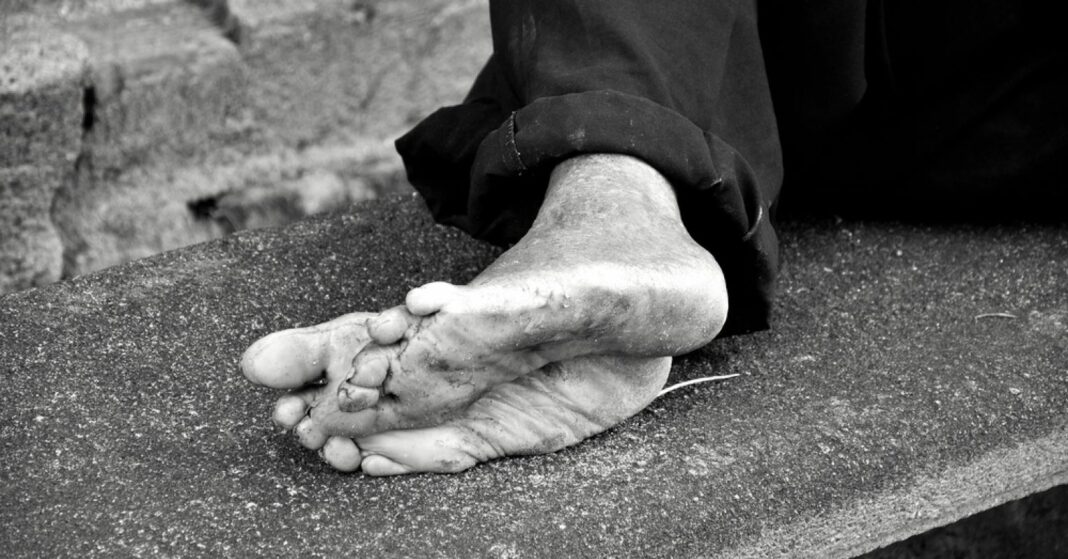The SCOTUS Decision on Homelessness May Increase Suicides
Recently, the Supreme Court of the United States (SCOTUS) made a decision regarding homelessness that could have far-reaching implications. While the ruling was intended to address a specific legal issue, there is concern that it may inadvertently lead to an increase in suicides among homeless individuals. In this article, we will explore the potential impact of this decision and its implications for public health and safety.
The SCOTUS Ruling and Its Effects
The SCOTUS decision in question pertains to the enforcement of laws that criminalize homelessness, such as bans on sleeping in public spaces or panhandling. While these laws are often implemented by local governments as a way to address public nuisance and safety concerns, they have also been criticized for disproportionately targeting and punishing homeless individuals.
By upholding the legality of these laws, the SCOTUS decision may inadvertently exacerbate the challenges faced by homeless individuals, including their mental health and well-being. Homelessness is already associated with a higher risk of mental health issues, substance abuse, and suicide, and the criminalization of homelessness can further marginalize and stigmatize this vulnerable population.
The Link Between Homelessness and Suicide
Research has shown that homelessness is a significant risk factor for suicide. Homeless individuals face a myriad of challenges and stressors that can contribute to feelings of hopelessness, isolation, and despair. Factors such as lack of stable housing, access to adequate healthcare, and social support can all impact an individual’s mental health and increase their risk of suicidal ideation and behavior.
By criminalizing homelessness and restricting access to essential resources and services, the SCOTUS decision may worsen these risk factors and further isolate homeless individuals. Without proper support and intervention, the mental health of this population may deteriorate, leading to an increase in suicides.
Implications for Public Health and Safety
The potential increase in suicides among homeless individuals as a result of the SCOTUS decision has significant implications for public health and safety. Suicide is a preventable cause of death, but it requires a comprehensive approach that addresses the underlying social, economic, and environmental factors contributing to mental health issues and suicidal behavior.
By criminalizing homelessness and denying this population access to essential services and support, the SCOTUS decision may hinder efforts to prevent suicides and promote mental health among vulnerable individuals. It is crucial for policymakers, advocates, and communities to recognize and address the intersection of homelessness and suicide in order to safeguard the well-being of all individuals.
Conclusion
The recent SCOTUS decision on homelessness has raised concerns about its potential impact on suicide rates among homeless individuals. By upholding laws that criminalize homelessness, the decision may exacerbate the challenges faced by this vulnerable population and increase their risk of mental health issues, substance abuse, and suicide.
It is imperative for policymakers to consider the broader implications of such rulings on public health and safety and to take proactive measures to support homeless individuals and prevent suicides. By addressing the root causes of homelessness and providing access to essential resources and services, we can work towards a more equitable and inclusive society for all.
FAQs
Q: How can the criminalization of homelessness impact suicide rates?
A: The criminalization of homelessness can exacerbate feelings of hopelessness and despair among homeless individuals, leading to an increase in suicidal ideation and behavior.
Q: What can be done to prevent suicides among homeless individuals?
A: It is essential to address the root causes of homelessness, such as lack of affordable housing and access to mental health services, and to provide support and resources to help individuals overcome these challenges.
Q: How can communities support homeless individuals during this time?
A: Communities can provide access to shelters, healthcare services, and social support networks for homeless individuals, as well as advocate for policies that prioritize housing and mental health services for all.




